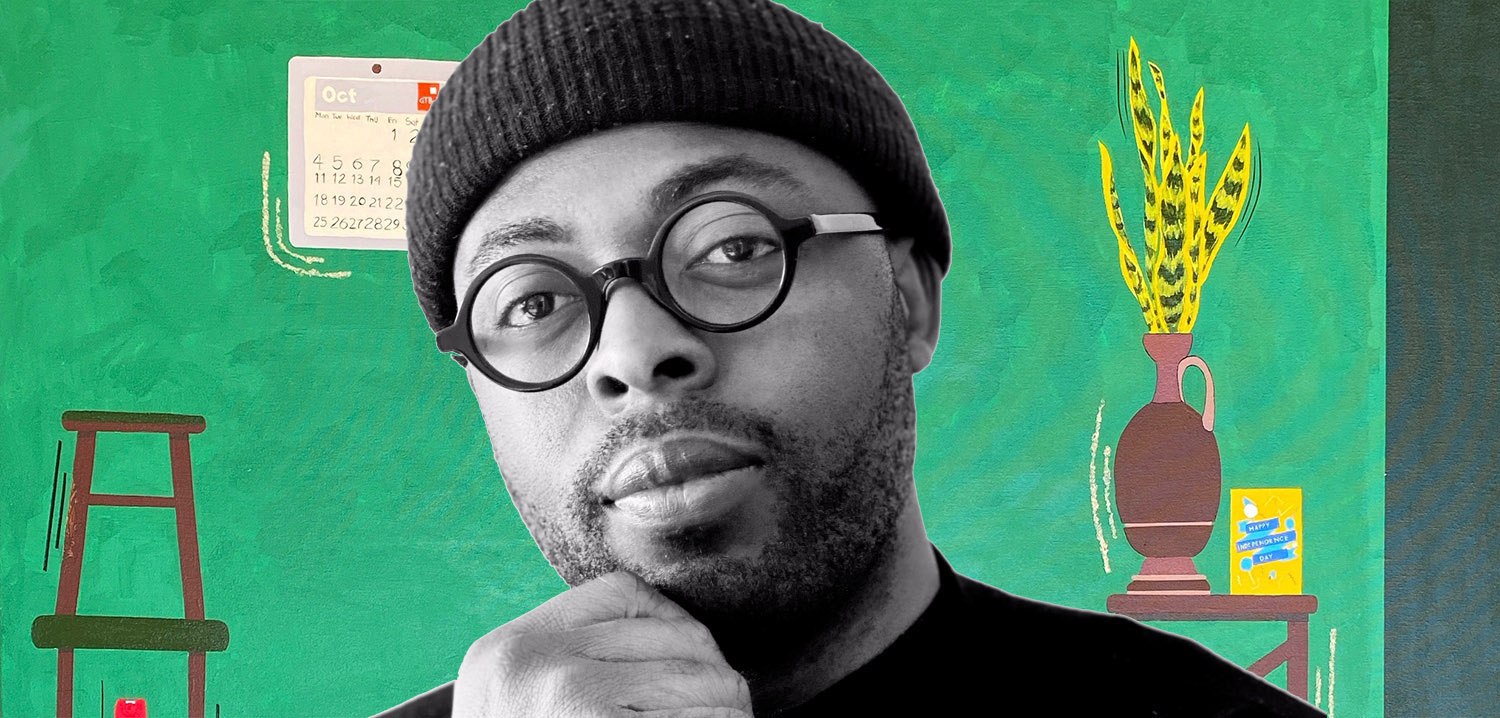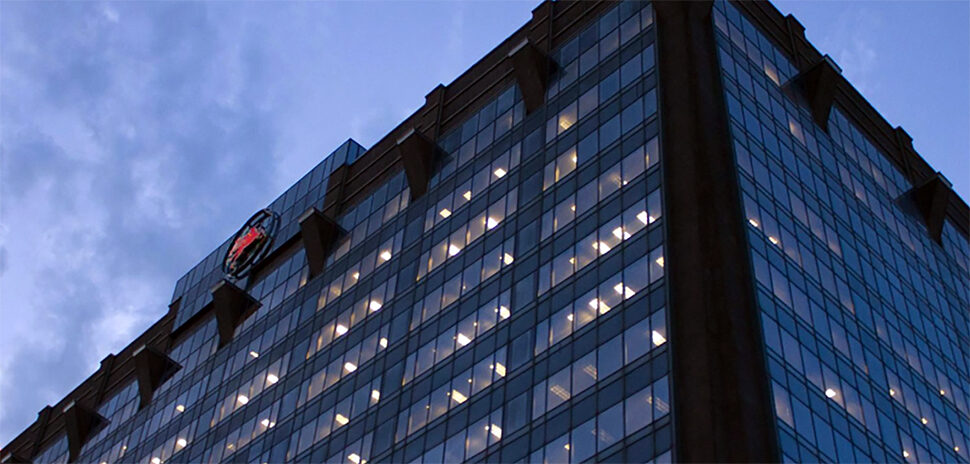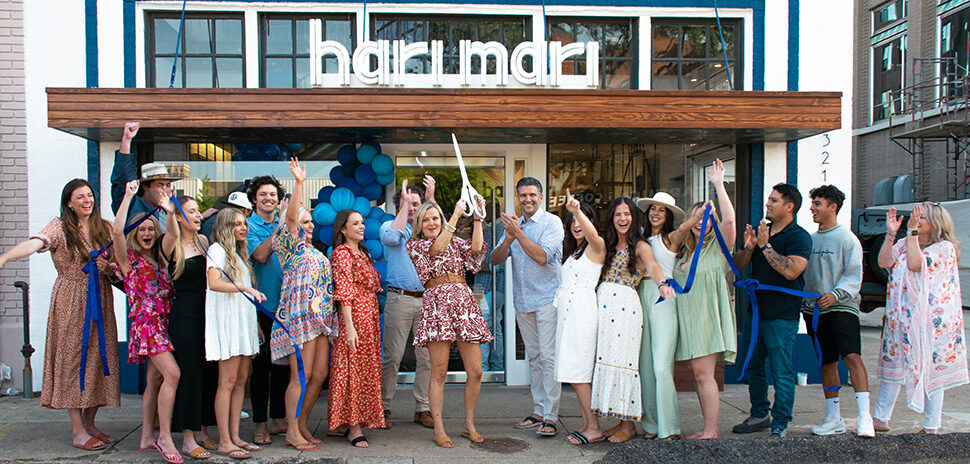The COVID-19 pandemic initially forced Nigerian visual artist Jeremiah Onifadé to postpone his new show “Blue Dot.” Now, it is set to happen this weekend. The 96-hour exhibition will take place in the Bonton neighborhood of Dallas in partnership with young local artists Charles Gray and Jess Tedder.
Taking place in a repurposed house, the four-day exhibition will explore gentrification and shed some light on the subject, according to the artist.
“What my practice talks about is the emotional aspect of every human. And to do this I love to explore the mind, emotions and beliefs of the human being through the Black perspective,” Onifadé told Dallas Innovates.
The show speaks to gentrification in society and sheds some light on it, Onifadé says. He believes that, as a society, we tend to think some parts of our community are not as beautiful as others, like the Bonton neighborhood where “Blue Dot” will take place.
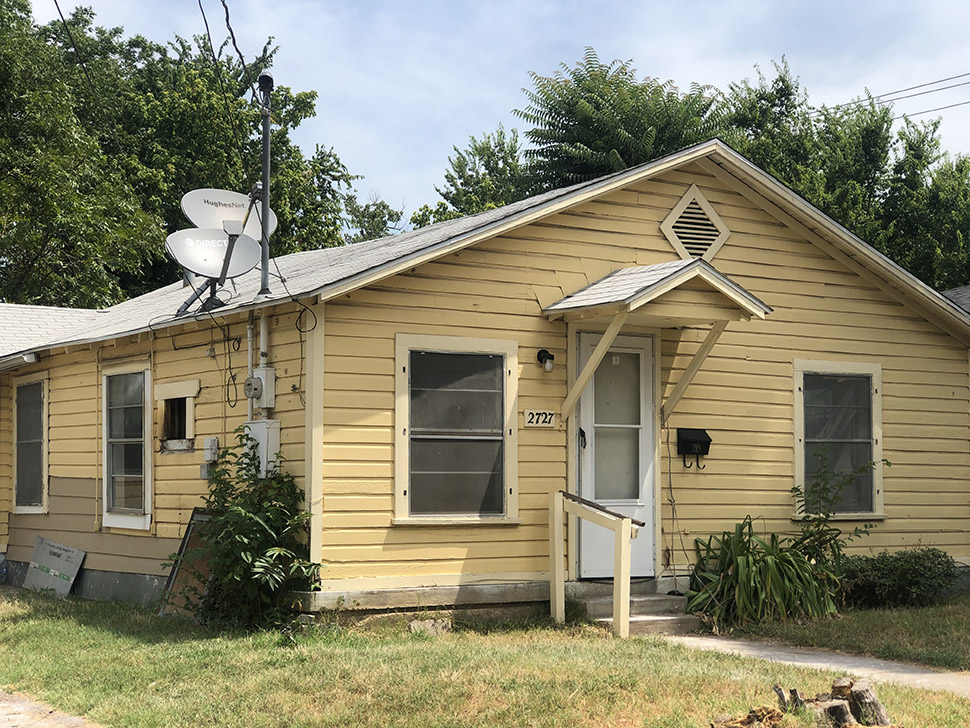
The house where “Blue Dot” will take place. [Image: Courtesy Jeremiah Onifadé]
The location of the neighborhood was very intentional, Onifadé says, as it is often ignored. Bonton, a historically Black neighborhood, was purposefully selected as the location of the exhibition to “open up Dallas denizens to new places and experiences.”
The “Blue Dot” art show is inspired by Onifadé’s belief that we as humans have a responsibility on Earth and that we’re all part of the same community.
“If you meet an alien, you’re not going to say you’re from Frisco or Nigeria,” Onifadé says. “You’re going to say, ‘I’m from Earth.’ And if we rescue you, we’re going to say ‘He’s from Earth. He’s one of us.’”
After moving from Nigeria to the United States, Onifadé noticed the difference between the two countries in terms of instilling change in society, particularly with the gentrification of communities.
“The difference between here and Nigeria is that Nigeria might not have the resources and the capacity for the socio-economic planning to change something. In America, we can do that right away,” Onifadé says. “I want people to question themselves and question our policies and say, ‘Are we just ignoring it?’”
Onifadé previously studied art at the Savannah College of Art and Design for a semester, but he had to drop out due to finances. He continued to study art and engineering, but decided to join the military before going back to school.
“My passion has always been returning to art and my imagination drove to drawing and paintings. I have studied art history, and I discovered how artists spoke about their life, and it took over my mind how I could express myself using art,” Onifadé says. “It went from drawing lines to actually making work and pieces that speak to specific issues.”
In 2019, Onifadé made his debut into the art world with his show “A Prelude to the Beautiful Unknown,” which revealed his style as “informed by hope, love, loss and pain,” according to a statement.
After his show, the Dallas Office of Arts and Culture gave him a grant for future exhibitions. However, COVID-19 originally forced him to reschedule his new show— but Onifadé believes all artists have had their struggles to express their passion.
“If we look back into time, Picasso, Tissot, Caravaggio, all of them had to go out of their comfort zone to prove themselves and to express themselves,” Onifadé says.
He notes that his work has always centered on the investigation and exploration of Black lives and what was missing in their history. When white people introduce themselves, they know and understand their ancestral roots, he says.
“When you know your ancestral roots it’s easy to have confidence and to move with pride,” Onifadé says. “Blackness can be truthfully included in history, let’s be truthful in our textbooks.”
Having seen first-hand what negativity can do to a community, Onifadé believes that one person taking the wrong approach can destroy many future generations. In the time of the Black Lives Matter movement, Onifadé hopes to instill into people the idea of “doing their part to fix society” through his artwork.
“I want people to take away from this art show is one big deal, which is, ‘I need to do my part to fix my society,’” Onifadé says. “’I need to do my part to ensure that Dallas is a wonderful place regardless of skin color, sex, age, race.’”
About the show
Patrons can come and view the exhibit from Friday, June 19, through Tuesday, June 23, at a repurposed house on 2727 Rochester St. in Dallas. For those who cannot attend in person, the exhibit will be available through a virtual reality option, which will be available on Monday, June 22.
“Who knows when the coronavirus will end?” Onifadé says. “If I don’t see what I can do to show it, it might not happen ever.”
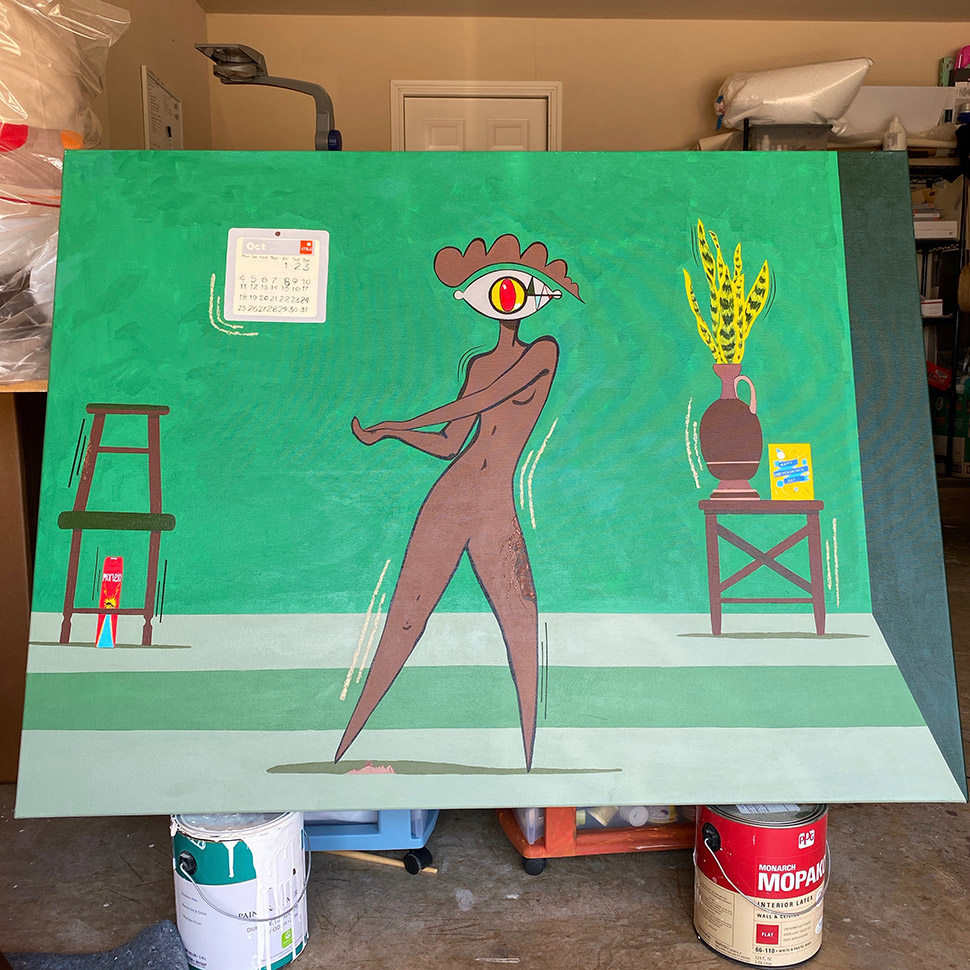
Art work by Jeremiah Onifadé. [Image: Courtesy Jeremiah Onifadé]
Due to the ongoing pandemic, Onifadé is requiring all attendees to wear a mask and will be providing face masks and gloves at the event, along with hand sanitizer and a hand-washing station in the front of the house.
Onifadé says he had some challenges in planning the exhibit, including keeping the house unoccupied since last November, pushing the date of the event, and obtaining permits. But, it’s not stopping him from sharing his message.
“It’s hard to do art right now,” Onifadé said. “It’s a life or death situation, and it’s important to be in tune with everything that’s going on. My hope is that people see our work, see what we have to say, then leave the house and do what they can do to make this place a better community for all of us.”
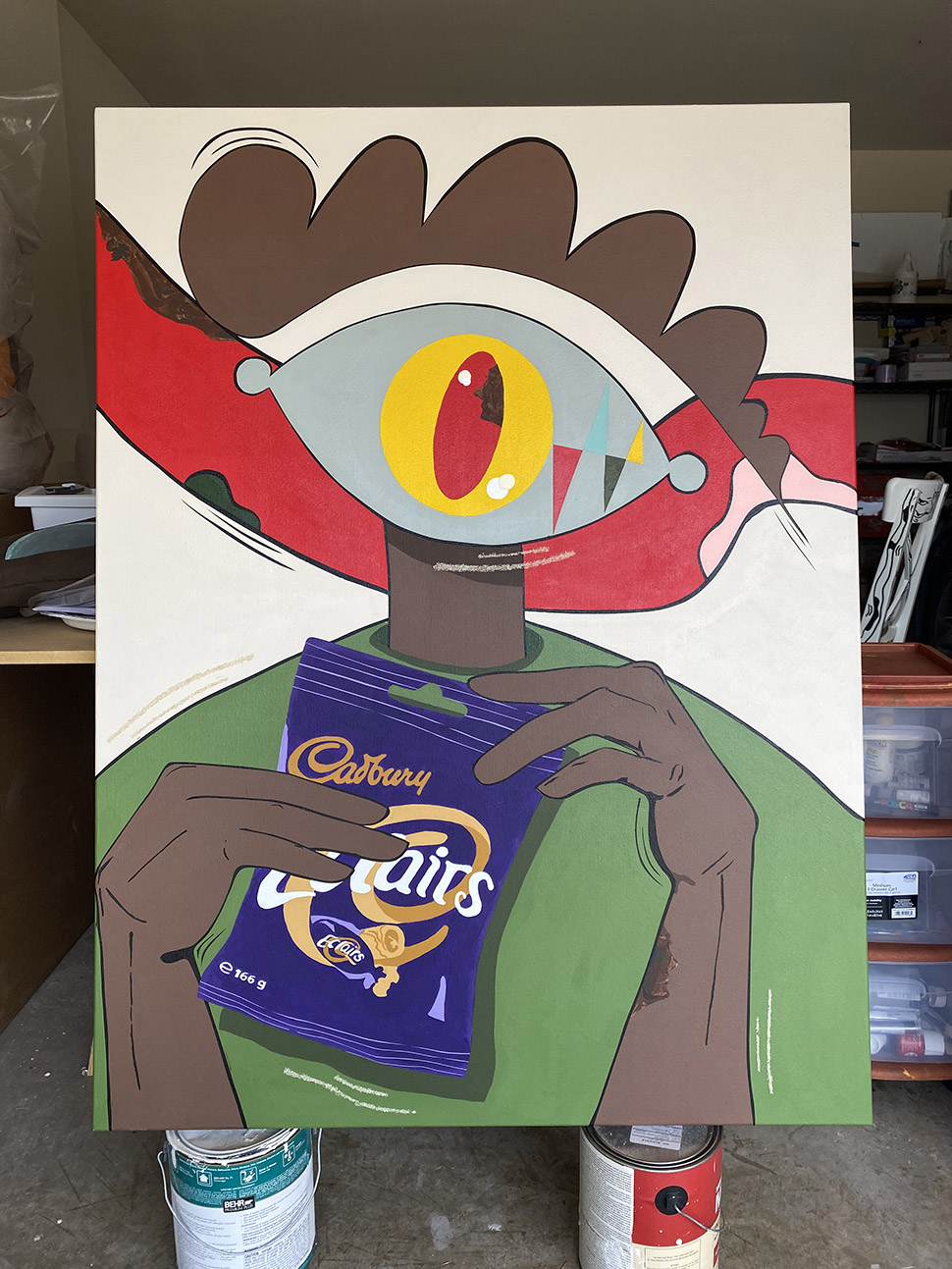
[Image: Courtesy Jeremiah Onifadé]
![]()
Get on the list.
Dallas Innovates, every day.
Sign up to keep your eye on what’s new and next in Dallas-Fort Worth, every day.










